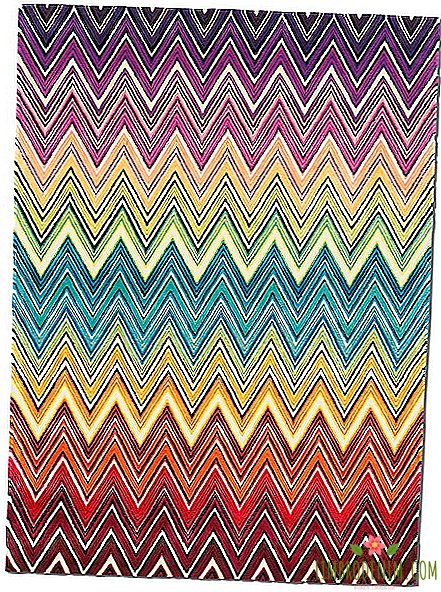Easy money: How spending has turned into a game
In the mid-eighties investment bankers, in times of big money and clear investments, the expression "British Queen" was common. In addition to the most crowned, this epithet indicated extremely wealthy clients of banks, who rarely had to deal with real bills.

Only thirty years have passed, and each of us has become such a "British Queen", because the overwhelming number of our spending takes place online - from buying tickets to replenishing a wardrobe. At the same time, the theory of consumption itself is being paid more and more - if not attention, then work. One of the recently published books about the nuances of modern spending habits proclaimed the value of modesty - and was described on a modest thousand pages.
It is clear that the moment of parting with money has long gone beyond the simple exchange of labor for good. But it’s just as important to understand how our habits to spend, plan, and distribute available resources begin to change with the development of modern technology.
If we turn briefly to the history of money, even their very image, symbolizing time and effort, was built around the metaphor of "labor" and "inaccessibility". Whether shells, gold or intricately printed bills - they could not reach easily and should have a very specific value (and pleasant weight) by themselves. Only today it seems artificial to us, however, if we recall the process of paying by credit card at least ten years ago - removing the slip manually, calling the bank for confirmation, - quite recently, taking cash in cash, earnestly earned, seemed like an imitation of quite tangible the process of "mining" money. Even going to an ATM at certain hours of operation with a multitude of security protocols - all this was a safari hunt for your own money. And it gave us even an ephemeral, but a sense of weight in the pocket, which is difficult to part with. And that clearly showed us our own budget: this is the amount you can dispose of, but how much will its size decrease if you decide to purchase this or that thing.
The day is near when the practice of daily shopping will increasingly resemble a child's play
And now this feeling has disappeared. Salary comes to the card in the form of a certain number, which is immediately distributed to the mandatory spending. The technology of subscription to monthly payments can also be insidious: on the one hand, with its help you can regularly help charitable foundations, on the other - unexpectedly discover that you have been losing hundreds of rubles for a year on unnecessary subscriptions, such as streaming services that you have not used for a long time.
Cash ceases to be the key to survival in a difficult situation: even if you left the house, leaving the keys in the apartment, you probably have a phone - and in it Apple Pay and a couple of bank customers to boot. In the little-known film "The Forecaster" was a wonderful monologue by Michael Kane, who explained to his unlucky son, who could not find a couple of dollars for coffee, that "an adult cannot leave home without cash!". Because - you never know what? Fortunately, for us, ordinary people without the superpowers of the "ideal gentleman" Kane, the world has changed to please forgetful and prone to spontaneous actions.
Adherents of healthy lifestyles and all kinds of walks along the picturesque embankments are getting used to being limited to silicone bracelets on their hands - they also have a step counter and a bank microchip, which you can go down in the subway and buy water along the way. For example, such as Alfa Bank issued six months ago. Although, if you have an iPhone or Apple Watch, there is no need to multiply entities: PayPass technology becomes more and more widespread, and cashiers are less and less surprised when you present your phone at the checkout.

Domestic retail giants, apart from the know-how Milan prices, are ready to offer their customers more technological solutions. For several months now, TsUM has been testing a new method of paying for the products they liked “without approaching the checkout”: in separate corners, consultants are armed with an iPod Touch with a POS terminal and are ready to calculate you on the spot. So impulsive shopping is now becoming ominously rapid - but on the other hand, the lines will soon remain just a memory, immortalized only in the memory of the Soviet and the novel by Vladimir Sorokin. By the way, this very mobile terminal, which turns any smartphone or tablet into a portable cash register, eliminates the use of cash, even in micro-trading.
However, it’s possible that these technologies will soon become pretty retro-adherents: on December 5, last year, Amazon opened its first AmazonGo store next to the company's office in Seattle, which works on the principle of “take and go” quite literally - the shelves with products are equipped with special sensors and the required amount is deducted from the account as soon as you go beyond the store. While the store is open only to employees of the retailer, but judging by the fact that the company has already patented the technology in the UK, the day is not far when the practice of daily shopping will increasingly resemble a children's game.
True, this is for those who still need to play the ritual of "going to the store," despite the fact that Amazon has been developing the practice of instant shopping from the couch for the last ten years. Recently, they also presented a new technology, as if descended from the pages of a good dystopia, the Dash Button buttons, which allow with one click to order various regularly required goods, like toilet paper or laundry detergent. From now on, having discovered that the tube of toothpaste is treacherously empty, you simply press a button (you can glue it anywhere). And yes, “you get the result”: in a day, Amazon will deliver what you need to your doorstep.
It is necessary to understand that the responsibility to instill in oneself the habit of cost control entirely on us, since such a task is not necessary for large companies.
Against the backdrop of the absolute virtualization of our spending, the really high-profile crimes became no longer the hijackings of collector machines, but hacking personal accounts and accounts - and this is generally normal. It reminds us, sacred a banknote, a coin and its denomination, about its conditionality. Even contemporary artists, who are increasingly cynically using bank notes as materials for their own artwork, tell us that cash depreciation is fairly straightforward. Recall, for example, the volume sculptures of Steve Campbell from dollar packs or the portrait of Obama, completely made of coins by the artist Ted Stanke. It turns out to be a sobering guess that a hundred lire, rubles, dollars and euros is only a figure of speech, a metaphor. This metaphor, for example, Bitcoin - the first cryptocurrency in the world, which quite successfully withstood more than one legal attack and is increasingly recognized as legal.
And yet, no matter how virtual, intangible our expenses become, no matter how lost the sense of money is, their absence is still quite real. Getting used to save time and using more and more convenient technologies, it is necessary to understand that the responsibility to instill in us the habit of cost control entirely on us, because before large companies, as you might guess, this task is not worth it.
Here, an infinite number of services and applications come to our rescue. If some help us to spend, others systematize these expenses, can help them to analyze and optimize - in general, they will easily become your home accountant. And we also wrote about them more than once. Therefore, do not dramatize: yes, the further, the more confident the retail will look like a Skinner box online, but even this rough comparison suggests that in addition to the ubiquitous pleasure buttons, there are self-limiting mechanisms. In the end, you can always put a push-notification with the song Nickelback on the eighth purchase of clothes in a month - this can work.
Photo:Apple BestStock - stock.adobe.com





